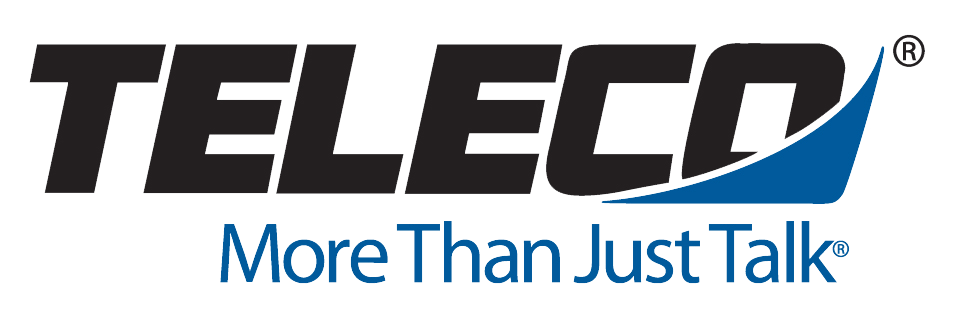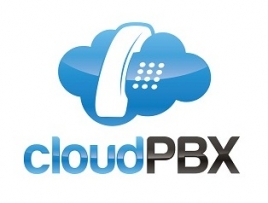This is the most common kind of telephone system sold today. It combines the ease of use and cost of a key system with the expansion and power of a PBX. Hybrid Telephone systems have largely replaced traditional Key and PBX system and come in sizes ranging from 4 phone to over 400. Virtually all hybrid telephone system also come with VoIP capabilities built in, so you can set up remote phones for telecommuters, link multiple offices, or get dial tones directly over the Internet, called SIP trunking. Hybrid systems can even be set up as all VoIP or Pure VoIP systems or in combination with digital and analog phones and phone services.
VoIP: Voice Over Internet Protocol System
PBX systems were significantly improved, thanks to two developments during the 1990’s. It gave rise to new types of PBX system. The first development involved the massive growth of data networks and packet switching—which the public was beginning to understand. Businesses needed packet switched networks for data, and using them for phone calls was tempting.
The Internet was now widely available as a global delivery system, which made packet switched communications even more tempting. This eventually led to the development of VoIP technology.
IP Telephony is so much more than simply converting voice signals into data bits. It also involves call set-up messages and networking information, which is visible to the end user. This system makes ease-of-use and convenience possible with these networked telephony systems.
Students at a remote campus, or office workers in a particular department—are able to benefit from the functions and features, like music-on-hold, voice mail, message lights and telephone set displays – though they were connected to a central site.
It is true that IP Telephony is expanding globally, as decision-makers start seriously considering the benefits and potential cost savings that these converged infrastructures offer. VoIP solutions protect your investment, and deliver all the traditional benefits of a PBX system, without the geographical limitations.
Employees working remotely can be added to the company’s call centers—so that they can take calls at peak hours during an event, a lunch break or a promotion. This will generate higher call volumes for the on-site call consultants.
The best part is that these remote offices can be located in other time zones, other cities—so that the call centers function 24/7. A single call center can handle calls for the whole company after hours—for service, repair or any other emergency problems. Remote offices mean opportunities for lower cost of living communities and employees that have lower salary requirements. It contains office expenses and reduces employee costs.
VoIP technology includes sophisticated communication features, but they are also easy to scale and robust enough to offer something for every enterprise’s needs.
Things to Consider:
A fairly large concern with VoIP systems, involve emergency 911 calls. It is very important to address this issue prior to installing a VoIP System.
VoIP relies on an Internet connection, and the quality of service that you receive will be directly related to the broadband Internet service that you have.
If your PC is faulty, gets a virus or otherwise cannot operate properly—this will also affect your telephone systems. Bad Internet connections or line congestion often results in low quality voice transfer, or distortion. If you simultaneously use your computer while making a VoIP call, sometimes the quality of voice transfer decreases dramatically.
All Internet connections can fail, which in turn affects your business. Consider factors like jitter, packet loss and latency. Transmission errors can affect phone conversations to the point where you cannot even understand the person on the other side anymore. Stability of Internet data transfer must be guaranteed before VoIP completely replaces traditional phone systems.
Cloud-Based System
Cloud telephone systems are the “newest” product on the business telephone market. Cloud phone systems are hosted PBX systems with a cooler name.
“Cloud” has become the newest buzzword in VoIP and hosted PBX. They change the way you buy communications and refine how you are able to communicate. This allows your workforce to be more flexible, productive and agile—exactly what is needed for business growth.
- Cloud systems provide easy, reliable access to communications for employees around the globe, that need to connect from many locations or areas.
- They allow you to communicate and collaborate from anywhere in the world, at any time of the day or night, from any sort of device – mobile or desktop.
- Cloud systems support remote and mobile employees, which helps them to stay productive when it matters most.
You just need to choose the telephone system that meets all of your communication needs. Keep in mind that cloud systems require a great Internet connection to work. The major downside is that they have the same shortcomings as the Internet does. When the Internet goes down, your telephone system will also be down.
This is why it is important that you have a stable Internet connection. Monitor your Internet speed with a free speed test. This will ensure that your network connection is fast, and can handle a cloud-based system. Typically, you will not have to pay for maintenance, support, or service. Setup and training are incredibly easy.
Your hosted phone system will give you an auto attendant, call forwarding, call waiting, music-on-hold and access to a ‘dial-by-name’ directory. Using this directory, you can reach anyone on your phone system, instantly.
Look out for:
- Round the clock, 24/7 support and monitoring. This will ensure maximum up-time and will allow your IT staff to work on more important things.
- Redundant servers, so that you don’t have any downtime.
The actual Cloud-system is based in the cloud (Internet) and as a subscriber you will connect for a monthly fee.
There are many benefits to using these cloud-based phone systems. The most interesting thing is that you can store your entire phone data in a software program in the cloud, which means it can never be lost or deleted. If you are a small business that simply does not have a large budget for a PBX system or a key system then a cloud-based system may be what you need.

